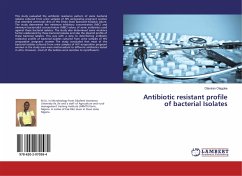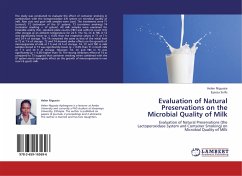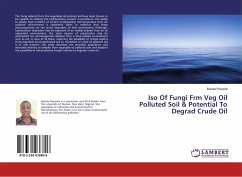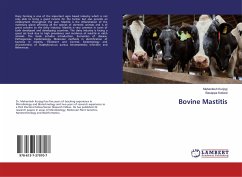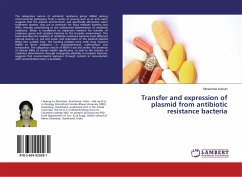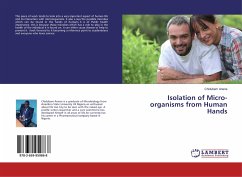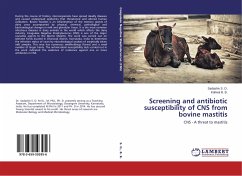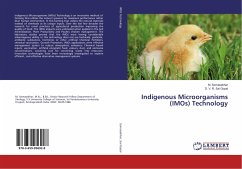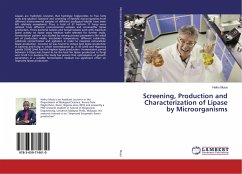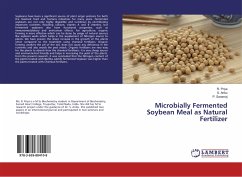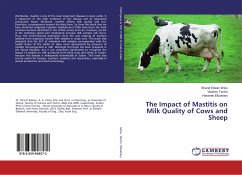
The Impact of Mastitis on Milk Quality of Cows and Sheep
Versandkostenfrei!
Versandfertig in 6-10 Tagen
37,99 €
inkl. MwSt.

PAYBACK Punkte
19 °P sammeln!
Worldwide, mastitis is one of the most important diseases in dairy cattle. It is important of the high incidence of the disease and its associated production losses. Moreover, mastitis affects milk quality and has, therefore, consequences beyond the dairy farm. So from this book that we have obtained coagulase negative staphylococci (CNS) have been the most common bacteria identified in the whole survey and can, however, persist in the mammary gland and moderately increase milk somatic cell count. Thus, the environmental pathogens were the vast majority of bacteria isolated from suspicious bov...
Worldwide, mastitis is one of the most important diseases in dairy cattle. It is important of the high incidence of the disease and its associated production losses. Moreover, mastitis affects milk quality and has, therefore, consequences beyond the dairy farm. So from this book that we have obtained coagulase negative staphylococci (CNS) have been the most common bacteria identified in the whole survey and can, however, persist in the mammary gland and moderately increase milk somatic cell count. Thus, the environmental pathogens were the vast majority of bacteria isolated from suspicious bovine milk samples in study area. This book also indicated that the SCC of individual milk samples corresponded with the health status of the udder of dairy cows represented by presence of mastitis microorganisms in milk. Although this book has been prepared in the Slovak Republic, but it can contribute significantly to recognize the impact of mastitis on milk produced from dairy cows and sheep in Sudan, because this disease is widespread dramatically in Sudan. This book also can be useful for farmers, teachers, students and researchers, especially in animal production and food technology.



